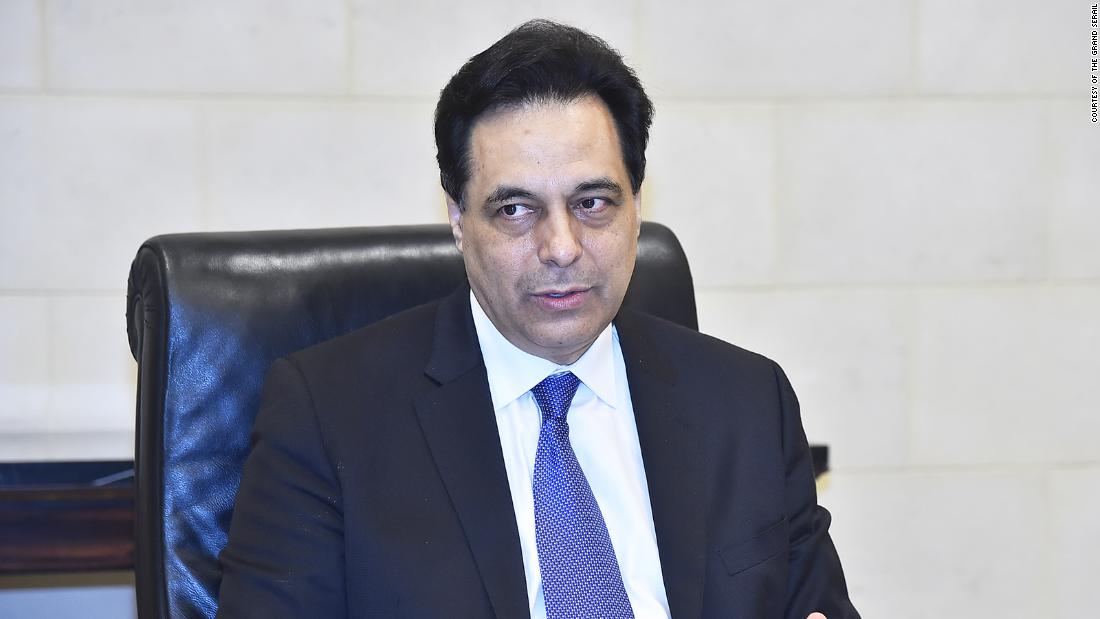Documents sent to the ministries as part of the investigation made it clear how dangerous the ammonium nitrate could be and warned that ‘igniting it would cause a major explosion and that the port would be almost destroyed.’
CNN saw some of the documents in a file sent to the Department of Public Works.
Minister of Public Works Michel Najjar checked the documents late on August 3 and instructed ministry officials to follow up on the matter, according to the caretaker’s office. A stamp on the documents received by the ministry was on August 4, 2020 – the same day that the port of Beirut was torn apart when the chemical exploded.
CNN requested comment from Najjar and received no response.
At least 204 people were killed and thousands more injured in the blast that tore through the Lebanese capital. The blast, which swept an orange mushroom cloud over the city, caused extensive damage to the central and eastern districts of Beirut, displacing about 300,000 people from their homes.
More than four months later, the explosion of the material is unclear, but government officials said they could not rule out sabotage.
“Everything that happens is suspicious,” Diab told CNN. “There’s something inexplicable, the timing of this, that’s happening.”
He denies the charge and says he was singled out, despite the fact that the explosive material was stored in the harbor for about six years before taking office.
“You have to ask the questions: Who brought the ship? Who owns it? Who paid for it? Who kept silent about it for seven years?” Said Diab.
Since the ammonium nitrate arrived in Beirut, Lebanon has had four prime ministers, including the country’s current designated prime minister, Saad Hariri, who has denounced Diab’s charge.
Diab – who has already submitted a voluntary affidavit – did not want to be questioned by the judge who led the investigation and said it did not have a constitutional basis.
The investigation was suspended after two of the former ministers facing charges requested that the judge be removed from the case.
The documents sent to the Ministry of Public Works before the explosion raised the possibility that the explosive material could have been stolen; they warn of a broken door in the warehouse where the deadly material was stored, revealing that safety there was little.
A Lebanese intelligence official told CNN that 1,300 tons of ammonium nitrate had disappeared into the warehouse before the explosion.
Diab’s government, which will be replaced when a new cabinet is formed, has repeatedly acknowledged that it has received advance warnings about the dangers of storing explosives in the port.
Previous governments have also been notified about the warehouse, but no one has addressed the issue.
“No remorse”
Diab has repeatedly accused Lebanon’s ruling elite of ‘besieging’ its government and heightening its plans for a series of economic and political reforms.
He took power in January 2020, months after a popular uprising engulfed the country, and as the crisis-stricken country nears a financial collapse.
Diab, a technocrat and professor at the American University of Beirut, headed a largely technocratic government led by a parliamentary majority backed by Hezbollah.
But his tenure has pushed the country’s currency tank, the coronavirus pandemic, rising poverty levels and destroying the port of Beirut.
Diab says his government “was an opportunity for Lebanon to recover from its losses, economically, socially, financially”.
“With the support of political parties, with the support of the (Arab) Gulf (countries), with the support of the Europeans and Americans, we would have made a big, big difference and we did not provoke anyone,” he said. said.
“In a country like Lebanon … you need consensus, and you also need support from the international community, and the Gulf. None of these things were premature.”
